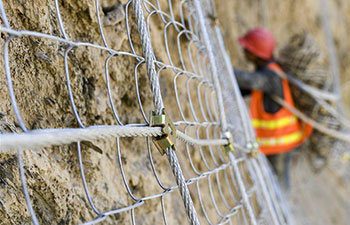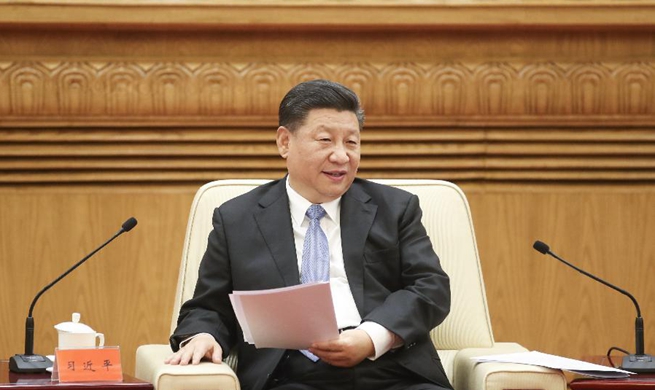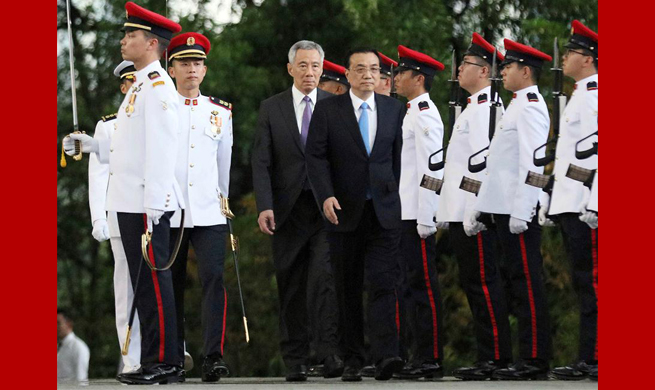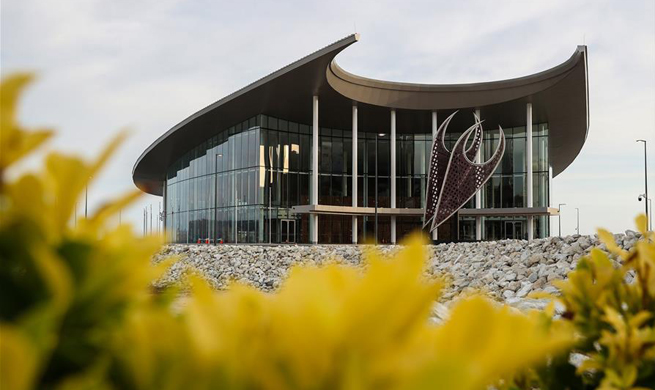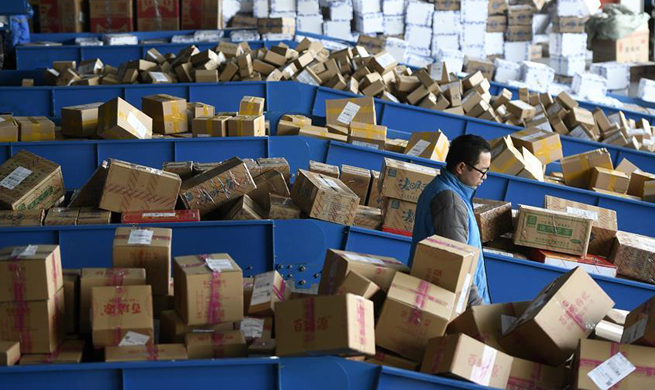ADDIS ABABA, Nov. 12 (Xinhua) -- The African Union (AU) Commission on Monday urged its member countries to strengthen recent gains towards the bloc's financial autonomy.
The appeal was made by AU Commission Deputy Chairperson, Kwesi Quartey, who called the adoption of AU's 2019 budget "a watershed moment for Africa," as African leaders are set to gather at the headquarters of the AU in Ethiopia's capital Addis Ababa on Saturday.
As 45 African leaders are expected to attend the 11th AU extraordinary summit of heads of state from Nov. 17 to 18, the institutional reform of the AU and its financial autonomy is expected to be a major agenda of discussion.
Amid a call to its member states to increase their financial contribution, the pan African bloc also stressed its commitment to reducing its financial expenditures so as to minimize its dependency on partner funds.
During the 31st Ordinary Session of the AU Summit that was held in Nouakchott, Mauritania in July this year, the AU approved a budget of 681.5 million U.S. dollars for the financial year 2019.
The approved budget, which covers three major components of the AU that are operational, program and peace support operations, has registered a record 12 percent decrease as compared with that of the previous year.
According to Quartey, the decrease in AU's annual budget is also reflected by the share of AU member states' financial contribution to the AU's budget, which has substantially increased compared with the partner funding in previous years.
The 2019 budget, excluding the peace support operations, indicated the contribution from member states to reach 66 percent while 34 percent is expected to be secured from the development partners.
Quartey, in a statement issued ahead of the leaders' summit, also stressed that the registered increase of member states contribution is a result of the financing of the Union decision that was made by African leaders to support AU's ambition towards its autonomy.
"Through this mechanism, we can see that the continent is gradually realizing its vision of reliable, predictable and sustainable funding of its agenda," Quartey said.
The 2019 budget also demonstrates an enhanced process of domestic resources mobilization as the AU embarked on what it labeled as "stringent measures to ensure the prudent use of resources to meet the development needs of our Continent."
Approving 681.5 million dollars for next year, the AU also revealed allocation of 161.4 million dollars to finance its operational budget, 252.8 million dollars to go to the program budget while 273.3 million dollars will finance Peace Support operations across the continent.
The AU also revealed on Monday that the 2019 budget "is different as the Union adopted new ways of programme planning and budget process, to ensure greater accountability in line with the implementation of the decision of Financing on the Union."
At the 27th AU Summit that was held in Rwanda in 2016, a financing proposal was adopted to direct all AU member states to implement a 0.2-percent levy on eligible imports from a non-AU member country.
The initiative mainly aspires to create an equitable and predictable source of financing for AU and to reduce dependency on partner funds.
The financing proposal mainly envisaged to cover 100 percent of the Union's operational budget, 75 percent of its program budget and 25 percent of AU's peace fund.
Countries such as Kenya, Rwanda, Chad, Ethiopia, Republic of the Congo and Ghana were last year praised for being at the forefront in implementing the 0.2-percent levy on imports of eligible goods to the continent.
The contribution from AU member countries has also increased this year, according to the AU.
"There is commendable progress in the collection of the 0.2 percent levy by member states," Quartey said on Monday, adding that "We have 24 States that are at various stages of domesticating the Kigali Decision on Financing the Union and of these, 14 are actually collecting the levy."
According to the deputy chairperson, 11 of AU member countries have already paid their 2018 assessed contributions to the AU, either partially or in full, through the new financing arrangement.
"Looking at the progressive developments in Africa's self-financing agenda, I believe this is a watershed moment for Africa," Quartey said.
The AU also revealed plans to strengthen the sanctions regime for non-payment of contributions to ensure its member states payments are made on time.
Under the current sanctions regime, member states' non-payment is classified to be in default only if they are in arrears for two full years, eventually leading to a trend where about 33 percent of the assessed contributions from member countries regularly held in arrears.

